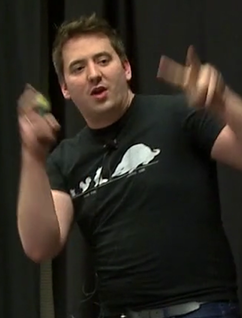Registration for ACCU 2015 is now open. -- Martin Moene
 Martin Moene reports that registration for ACCU 2015 is now open. ACCU always has strong C++ content, mixed with topics on other languages and software design and architecture.
Martin Moene reports that registration for ACCU 2015 is now open. ACCU always has strong C++ content, mixed with topics on other languages and software design and architecture.
From the conference page:
ACCU 2015
News
- Location: Marriott Hotel, 2 Lower Castle Street, Bristol
- Dates: 21st to 25th April 2015.
- Call for papers has closed.
- Schedule announced.
- Register now.
Keynote Speakers
- Chandler Carruth: C++ language platform lead at Google, late night LLVM hacker, all around trouble maker.
- Jim Coplien: Weaver of the paradoxes of lean and agile, of agile and architecture, and of objects and use cases
- Alison Lloyd: Pilot, embedded engineer, small business owner, and all-round dabbler.
- Axel Naumann: High Energy Physicist, professional tourist in the land of Computer Science at CERN

 Just a reminder: In case you missed the original December 21 deadline for C++ Now proposal submissions, you still have time... the deadline has been extended to January 11.
Just a reminder: In case you missed the original December 21 deadline for C++ Now proposal submissions, you still have time... the deadline has been extended to January 11. The January C/
The January C/ At the recent CppCon 2014, Chandler Carruth gave a great talk on using Modern C++ for writing high-performance applications.
At the recent CppCon 2014, Chandler Carruth gave a great talk on using Modern C++ for writing high-performance applications.